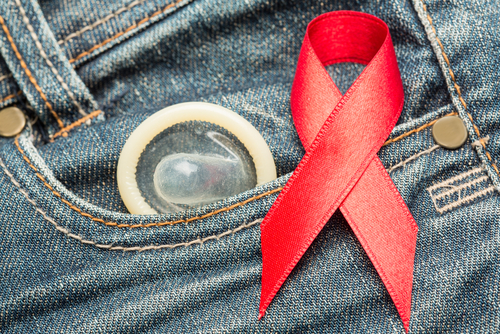HIV (Human Immunodeficiency Virus) is a deadly virus that attacks the immune system and weakens the body’s defence against infections. The HIV is a lentivirus that causes AIDS.
What is HIV (Human Immunodeficiency Virus)?
The human body can be exposed to various viruses including those that cause the “flu” or the common cold. As the time progresses and with different treatment options, the immune system can clear most viruses out of the body. But, in cases of HIV(Human Immunodeficiency Virus) the human immune system fails. This is because HIV attacks T-cells or CD4 cells, which are a key part of the immune system. These cells are crucial for the body because these fight against infections and diseases. But, HIV(Human Immunodeficiency Virus) invades these cells and makes more copies, and then destroys them.
There is no safe and efficient HIV prevention method, but researchers and doctors claim that proper medical care and some precautions may control the condition.
Symptoms of HIV:
As per the doctors, early stages of HIV(Human Immunodeficiency Virus) infection doesn’t show signs in various cases 1. One in five people in the United States with HIV doesn’t know that they have the condition. So, it is advisable to get tested if you have unprotected sex with more than one partner or used intravenous drugs. In addition, people suffering from early HIV symptoms are called acute retro-viral syndrome. The symptoms include:
• Enlarged lymph nodes in the neck, armpits, and groin
• Fever
• Diarrhea
• Headache
• Belly cramps, nausea, or vomiting
• Skin rash
• Sore throat
• Muscle aches and joint pain
• Weight loss
The underlined HIV symptoms can range from mild to severe and usually disappear after 2 to 3 weeks. After the symptoms fade away, the infected person may not experience these signs again for many years. But, after a certain period, symptoms reappear and remain in the body. Additionally, untreated HIV infection progresses in stages and can lead to AIDS. Some of the later HIV symptoms include diarrhea, fatigue, fever, nail changes and numbness in the limbs.
Also Read: 4 Simple Ways To Avoid Unwanted Pregnancy
What are the stages of HIV?
HIV spreads when the blood, semen, or vaginal fluids of an infected person enters another person’s body through sexual contact, infected blood or sharing infected needles. The condition may spread easily in the early stage of infection and later again. However, HIV prevention is possible at all phases. Below are the stages of HIV that a person can transmit to others:
• Acute HIV infection- This condition develops within two to four weeks after a person gets infected with HIV. During this period, many people have flu-like symptoms like fever, headache, and rash in which HIV multiplies rapidly and spreads throughout the body. This results in the destruction of CD4 cells of the immune system.
• Chronic HIV infection- During this stage, HIV multiplies in the body but at low levels. In this phase, people may not have HIV-related symptoms, but they still spread HIV to others.
• AIDS- AIDS is the final stage of HIV infection in which the immune system is badly damaged and you are vulnerable to infections and infection-related cancers. Additionally, when the number of CD4 cells falls below 200 cells/mm3, then you are confirmed with AIDS. Without treatment, people with this condition typically survive about three years.
How to prevent HIV?
The primary way to HIV prevention is to keep you away from an infected person like having sex without a condom and sharing needles and other injecting equipment. Below are some of the key points you should keep in your mind if you want HIV prevention:
• Practice safe sex- Make sure to perform safe sex by using a condom unless you are in a relationship with one partner who does not have the underlying condition. Always talk about sexual history with your partner before indulging in a physical relationship. In case you have sex with someone who has HIV, it is important for you to get tested for HIV (Human Immunodeficiency Virus) on an urgent basis. However, to reduce the risk of getting infected you can take a combination medicine (Tenofovir plus Emtricitabine) every day.
• Alcohol and drugs- Under the influence of alcohol and drugs people sometimes become careless about practicing safer sex and may use intravenous (IV) needles and syringes. So, never share intravenous (IV) needles, cocaine spoons, or eyedroppers with others if you use drugs.
Conclusion:
HIV (Human Immunodeficiency Virus) is a very dangerous condition, but timely treatment and prevention of it can prevent or delay the development of AIDS. If you think that you get exposed to HIV, then get tested immediately. Result of test may be scary, but treatment may help you live longer life.
Must Read: HIV AIDS: All You Wanted To Know




